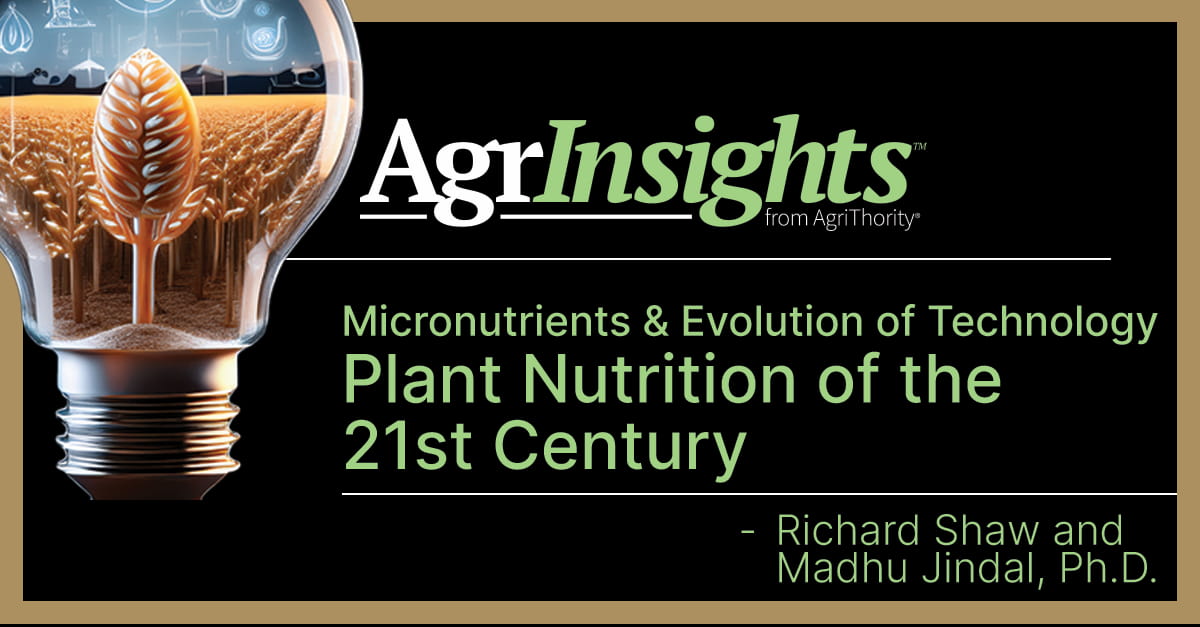Sustainability is going mainstream. The Farm to Fork strategy in Europe is focused on it, and the United States government is making historic investments to encourage sustainability in agriculture. In fact, more than 90% of U.S. companies are planning to increase their environmental sustainability budgets in 2023. Incorporating sustainability into business-as-usual will be an important step to take moving forward if companies haven’t done so already. But how can you make sustainability more sustainable? Agricultural companies must take a scientific approach to sustainability.
Some experts are calling this time period a “resetting” for agriculture. Others are predicting that “sustainable agriculture is the new green revolution” in that it will fundamentally change the way the agriculture industry produces food and fiber forever. Regardless of the semantics, the agriculture industry has been constantly adapting and changing since the beginning of time, and it needs to continue to adjust in this era of sustainability improvement.
Often-quoted Peter Drucker said, “You can’t manage what you can’t measure.” That’s especially also true for sustainability. But, it can be difficult to measure outcomes when so many variables impact production and the definitions of sustainability vary among companies. So, what does a true scientific approach to sustainability look like, and how do you develop it? And how do the regions of the world impact the definition of sustainability and the expectations moving forward?
Europe, Middle East and Asia
When it comes to sustainability, Europe gets a lot of headlines. Established in 2020, the Farm to Fork strategy is part of the New Green Deal intended to transform the EU economy and society toward greater resource efficiency and a more competitive, sustainable, and circular economy. Regarding agriculture the overarching aim is pioneering proposals to restore Europe’s nature by 2050 and halve pesticide use by 2030.
Europe-based AgriThority® expert Franz Brandl listed the goals Farm to Fork strategy has set for agriculture:
- Implementation and rigid execution of Integrated Crop Management
- Replacement of most hazardous agrochemicals and achieve a 50% reduction in volume applied
- Breeding of new varieties and review of new breeding technologies
- Changing agronomic practices implementing improved crop rotations
- Investment in independent advisory services
- Fast-track regulations of new technologies e.g. biologicals and biostimulants
- Investment in precision ag technologies
Based on these requirements, he emphasizes the following needs:
- to integrate all available tools not excluding chemicals
- to change the crop protection regulations not to handle biologicals like chemicals
- to allow new breeding technologies and adopt a science based approach in regulation
- to promote alternative technologies by the officials
- to unlock the interest of universities to do field oriented or applied research in new technologies
- the provision of private capital (e.g. venture capital, agrochemical industry) to develop new technologies
The reality is that many more questions need answers when it comes to implementing regulation like the Farm to Fork strategy.
Speaking about the industry’s commitment to develop biopesticides, Director General of CropLife Europe Olivier de Matos said: “New solutions are currently either stuck in the regulatory pipeline or lack the dedicated regulatory pathways for approval. One single biopesticide substance regulation can take up to seven years before it can be used by a European farmer. This means that any solution developed now would only arrive on the market as the Farm to Fork deadline hits.”
North America
More investment into sustainable agricultural research will open doors to sustainability solutions in the U.S. However, U.S. growers are among the lowest adopters of biological products in the world, ranking below both Europe and South America in sustainability-related technology, according to the McKinsey and Company Global Farmer Insights 2022 Report. The current paradigms of crop production need to change, and growers need new Best Management Practices (BMPs) that help them implement these new technologies.
Biologicals had a rough start in the U.S. with a “snake oil” reputation. But this reputation was due in part to a lack of scientific support and education about biologicals and how they could be used. Companies should plan to understand how and where their products work, then educate growers about the benefits when used accordingly. The good news is biological products are gaining momentum at the retailer level, and grower adoption is likely to follow.
Latin America
As the largest reserve of arable land in the world, South America holds a lot of potential that is beginning to be tapped. Latin America has a high level of biocontrol and biostimulant adoption and inclination toward innovative farming practices and technologies. The early adopter mentality could be due to the average age of Brazilian farmers being in their 40s, making them more adept at technology. However, there are certainly challenges that need to be addressed. Despite the challenges, Latin America is a potential case study for the more developed agricultural markets. Productivity can increase while using new technologies and biologicals, which is evidenced in Brazil and Argentina’s march to grain market domination.
Based on the 2022 Global Agricultural Productivity Report (GAP Report), the global agriculture industry can’t continue on the current path and expect to feed the growing population with the current sustainable agriculture production methods and declining agricultural productivity. The industry as a whole and each company should embrace a scientific approach to sustainability, which means define protocols, execute and measure results, make decisions based on the metrics and report results. Every link in the agriculture industry chain has a part to play to develop and register products that improve sustainability in a timely and efficient manner, to market beneficial products, and to equip growers who can put the technologies to work.
When your Research is ready for Development, turn to AgriThority® for scientific business, market, and product expertise to learn key insights on your new innovations. Our international footprint, combined with our deep understanding of market and producer dynamics, helps you to leap hurdles and overcome barriers to prepare your products for success.



